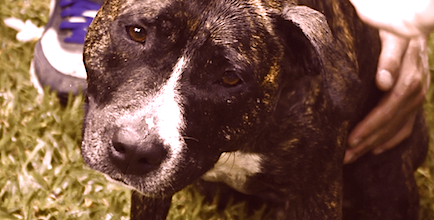Can Dogs Eat Broccoli? Everything You Need To Know.
Key Points: Broccoli, with its vibrant green color and crunchy texture, has long been celebrated as a nutritious vegetable for humans. But what about our furry companions? Can dogs partake in the goodness of this cruciferous veggie? So can dogs eat broccoli? When properly served and with acknowledgement of possible side effects, broccoli can be…

- Yes, dogs can eat broccoli in moderation, making it a crunchy and nutritious treat.
- This fiber-rich vegetable packs vitamins, antioxidants, and low calories, which can boost digestion, immunity, and even support dental health with its natural crunch.
- Just be mindful—too much can cause digestive issues, and raw or large pieces may pose a choking hazard, so serve it steamed and in small portions.
Broccoli, with its vibrant green color and crunchy texture, has long been celebrated as a nutritious vegetable for humans. But what about our furry companions? Can dogs partake in the goodness of this cruciferous veggie?
So can dogs eat broccoli? When properly served and with acknowledgement of possible side effects, broccoli can be a healthy addition to your dog’s diet, offering a range of nutritional benefits.
In this guide, we’ll explore the nutritional benefits and potential considerations of introducing broccoli into your dog’s diet.
- The Nutritional Value of Broccoli
- Potential Benefits of Broccoli for Dogs
- Safety Considerations When Feeding Broccoli to Dogs
- A Note on Isothiocyanates
- Which Dogs Should Avoid Broccoli?
- Could My Dog Be Allergic to Broccoli?
- So, Can My Dog Eat Broccoli?
- How Much Broccoli Should I Serve My Dog?
- What if My Dogs Eat Too Much Broccoli?
- How to Serve Broccoli to Your Dog
- Can Dogs Eat Broccoli Stems?
- Can Dogs Eat Raw Broccoli?
- Can Dogs Eat Broccoli and Cauliflower?
- Frequently Asked Questions (FAQ)

Don’t leave your pet’s safety to chance
Sign up for Petful recall alerts today.

The Nutritional Value of Broccoli
Before we dive into whether dogs can eat broccoli, let’s take a closer look at the nutritional profile of this green delight:
- Fiber-Rich: Broccoli is a good source of dietary fiber, which can promote healthy digestion in dogs. It may be particularly helpful for pups dealing with digestive issues.
- Vitamins and Minerals: Broccoli is rich in vitamins and minerals, including vitamin C, which supports the immune system, and vitamin K, essential for blood clotting and bone health. It also contains folate, potassium, and manganese.
- Low in Calories: Broccoli is a low-calorie vegetable, making it a suitable option for dogs watching their weight.
Potential Benefits of Broccoli for Dogs
Now, let’s explore some potential advantages of including broccoli in your dog’s diet:
- Digestive Health: The fiber in broccoli can aid in regular bowel movements, potentially helping dogs with constipation or diarrhea.
- Immune System Support: Vitamin C contributes to a robust immune system, helping your dog fend off illnesses.
- Antioxidant Properties: Broccoli contains antioxidants, such as sulforaphane, which can help combat free radicals and promote overall well-being.
- Oral Health: The crunchiness of broccoli may help naturally clean your dog’s teeth and reduce plaque buildup. However, broccoli should not replace regular dental care.
- Weight Management: Thanks to its low-calorie content and fiber, broccoli can be a filling treat without contributing to excessive weight gain.
Safety Considerations When Feeding Broccoli to Dogs
While broccoli offers numerous health benefits, it’s essential to consider safety precautions:
- Moderation: Just like any treat, broccoli should be given in moderation and as part of your dog’s balanced diet. It should complement, not replace, regular meals.
- Choking Hazard: Raw broccoli florets can pose a choking risk, especially for small dogs. Consider steaming or chopping them into smaller, manageable pieces for safer consumption.
- Gas and Digestive Upset: Some dogs may experience gas or digestive upset when introduced to broccoli. Start with small amounts to gauge your dog’s tolerance.
- Calcium Absorption: Broccoli contains substances that can interfere with the absorption of calcium. This isn’t a problem if a dog eats broccoli in moderation, but excessive consumption can lead to nutritional deficiencies.
A Note on Isothiocyanates
Isothiocyanates in broccoli and other cruciferous vegetables like cabbage and Brussels sprouts can cause mild to severe gastric irritation in some dogs. If a dog consumes these vegetables in extremely large quantities, it could potentially lead to more severe symptoms such as lethargy, anorexia, or a slower heartbeat. This is because isothiocyanates can interfere with the function of the thyroid gland, which is responsible for regulating metabolism.
The effect of isothiocyanates on a dog’s body can vary depending on factors like the dog’s size, age, overall health, and the amount of broccoli or other cruciferous vegetables consumed. Small amounts of broccoli are generally safe for most dogs, and the risk of isothiocyanate toxicity is generally low when these vegetables are fed in moderation as part of a balanced diet.
If a dog exhibits signs of distress, lethargy, vomiting, diarrhea, or any other concerning symptoms after consuming broccoli or other cruciferous vegetables, it is important for the owner to consult with a veterinarian promptly.
Which Dogs Should Avoid Broccoli?
While broccoli is generally safe for most dogs, certain situations warrant caution:
- Dogs with Thyroid Conditions: Broccoli contains compounds called glucosinolates, which can interfere with thyroid function if consumed in large quantities. If your dog has thyroid issues, consult your veterinarian before adding broccoli to their diet.
- Dogs with Sensitive Stomachs: Dogs with sensitive stomachs may not tolerate broccoli well. Start with a small amount and monitor for any digestive issues.
- Dogs Prone to Gas: Some dogs are more prone to gas when they consume broccoli. If your dog experiences excessive gas, consider limiting their broccoli intake.
- Allergies or Sensitivities: As with any food, some dogs may be allergic or sensitive to broccoli. Watch for signs of allergic reactions, such as itching, gastrointestinal upset, or swelling.
Could My Dog Be Allergic to Broccoli?
While uncommon, dogs can be allergic or sensitive to any food, including broccoli. Symptoms of a broccoli allergy or intolerance in dogs may include:
- Skin Issues: Itchiness, hives, redness, or rashes can be signs of an allergic reaction. The dog might scratch or lick excessively, especially around the paws, ears, or face.
- Digestive Upset: Vomiting or diarrhea might occur if a dog is intolerant or allergic to broccoli.
- Facial Swelling: Swelling around the eyes, lips, ears, or throat can indicate an allergic reaction.
- Coughing or Difficulty Breathing: These could be signs of a severe allergic reaction, especially if there’s swelling in the throat.
- Chronic Ear Infections: If a dog repeatedly gets ear infections, it might be a sign of an underlying food allergy.
- Behavioral Changes: Some dogs might become lethargic, anxious, or exhibit other changes in behavior when experiencing discomfort or an allergic reaction.
What to Do if You Suspect an Allergy:
- Remove the Allergen: If you believe broccoli is causing the issue, stop feeding it to your dog and avoid any treats or foods that contain it.
- Consult Your Veterinarian: If your dog shows symptoms of an allergic reaction, it’s essential to consult with a veterinarian. They can provide guidance on treating the immediate symptoms and discuss potential allergy tests or dietary changes.
- Allergy Testing: If the allergic reactions are recurring and the cause isn’t clear, your vet might recommend an allergy test to identify the specific allergens affecting your dog.
- Monitor for Cross-Contamination: Ensure that other foods or treats aren’t contaminated with broccoli if you believe it’s causing an allergic reaction.
So, Can My Dog Eat Broccoli?
Broccoli can be a healthy addition to your dog’s diet when introduced responsibly and in moderation. Its fiber-rich content and essential vitamins and minerals make it a valuable treat.
While broccoli is not toxic to dogs, it’s best to slowly introduce your dog to broccoli in order to monitor symptoms of gastrointestinal upset. Remember to adjust portion sizes based on your dog’s size and always prioritize their safety and well-being.
How Much Broccoli Should I Serve My Dog?
The amount of broccoli that a dog can safely eat depends on various factors, including the dog’s size, weight, age, and overall health. As a general guideline, treats and snacks, including vegetables like broccoli, should not make up more than 10% of a dog’s daily caloric intake.
Here is a general guideline of how much broccoli is appropriate to serve your dog based on size. Note that broccoli should only be used as an occasional snack, 1 or 2 times per week:
- Small Dogs (up to 20 lbs / 9 kg): Start with 1-2 small florets ( 1” x ¼”).
- Medium Dogs (20-50 lbs / 9-23 kg): 2-3 small florets ( 1” x ¼”).
- Large Dogs (50-100 lbs / 23-45 kg): Up to 4 small florets ( 1” x ¼”).
- Extra Large Dogs (over 100 lbs / 45 kg): Up to 5 small florets ( 1” x ¼”).
Since the symptoms of gastrointestinal upset in dogs vary quite widely, here are some general steps to help you determine an appropriate amount of broccoli for your dog:
- Consult Your Veterinarian: Always talk to your veterinarian before introducing a new food into your dog’s diet, especially if your dog has any known health issues. Your vet can provide personalized recommendations based on your dog’s specific needs and dietary requirements.
- Start Small: When introducing broccoli or any new food to your dog’s diet, start with small amounts to monitor how your dog reacts and to ensure they do not have any adverse reactions.
- Consider Your Dog’s Size: Smaller dogs will require much less broccoli than larger dogs. For a small dog, a single floret might be enough, while a larger dog might be able to eat a small handful of florets.
- Monitor for Any Adverse Reactions: Keep an eye on your dog for signs of gastrointestinal upset, such as gas, bloating, vomiting, or diarrhea, and adjust the portion size accordingly.
- Balance and Moderation: Remember that broccoli should be fed as a treat and not a meal replacement. Ensure your dog continues to receive a balanced and nutritionally complete diet.
- Adjust Based on Individual Tolerance: Some dogs might have a higher tolerance for broccoli than others. If your dog enjoys broccoli and does not experience any adverse reactions, you can continue to include it as a small part of their diet.
What if My Dogs Eat Too Much Broccoli?
If a dog consumes too much broccoli, it might experience a range of symptoms due to the presence of isothiocyanates and the high fiber content of the vegetable. Here are some signs to watch for and steps to take if a dog has eaten an excessive amount of broccoli:
Signs of Distress:
- Gastrointestinal Upset: Vomiting, diarrhea, and abdominal pain are common signs of overconsumption.
- Gas and Bloating: The high fiber content can lead to increased gas production and bloating.
- Lethargy: A dog may appear weak, tired, or uninterested in usual activities.
- Reduced Appetite: The dog might eat less than usual or show no interest in food.
- Increased Thirst and Urination: Some dogs might drink more water and urinate more frequently.
What to Do:
- Remove Broccoli: Ensure no more broccoli is available for the dog to consume.
- Monitor Closely: Watch your dog closely for signs of distress or discomfort.
- Contact a Veterinarian: If your dog is showing symptoms of distress, it is important to contact your veterinarian immediately for advice. They may recommend monitoring the dog at home, bringing them in for an examination, or inducing vomiting, depending on the amount consumed and the symptoms displayed.
- Provide Water: Ensure fresh water is available to help flush out the compounds.
- Rest: Allow your dog to rest and recover.
- Dietary Adjustment: Based on your vet’s advice, you may need to adjust your dog’s diet temporarily, such as offering a bland diet, to help their digestive system recover.
How to Serve Broccoli to Your Dog
Now that you know the benefits and precautions, let’s explore some delightful ways to serve broccoli to your furry friend:
- Fresh and Raw: Offer small, bite-sized florets as a crunchy treat or mix them with your dog’s regular meal. Ensure they’re small enough to reduce the risk of choking.
- Steamed or Blanched: Lightly steam or blanch broccoli to make it easier for your dog to digest. Chopped or mashed broccoli can be added to their food for added flavor and nutrition.
- Broccoli Dog Bites: Create homemade dog-friendly broccoli bites by mixing cooked and mashed broccoli with other dog-safe ingredients like oats, eggs, and lean meat. Bake until firm and serve as a nutritious snack.
- Broccoli Puree: Blend cooked broccoli into a puree and drizzle it over your dog’s regular food to enhance its taste and nutrition.
- Frozen Broccoli Treats: Freeze small broccoli pieces in water or unsalted chicken broth to create a refreshing and hydrating treat for your dog on hot days.
With any broccoli treat, make sure the broccoli is first washed thoroughly to remove any pesticides and cut into bite sized pieces to avoid choking hazards.
Can Dogs Eat Broccoli Stems?
Yes, dogs can eat broccoli stems. In fact, the stems of broccoli are nutritious and can be a crunchy treat for dogs. However, there are a few considerations to keep in mind:
- Choking Hazard: Broccoli stems can be a choking hazard, especially for small dogs. Cut the stems into small, bite-sized pieces to reduce the risk.
- Digestibility: The stems are tougher and less digestible than the florets. Chopping them up or lightly steaming them can help make them more digestible.
- Preparation: Serve the stems plain, without any added oils, salts, or seasonings. Clean them thoroughly to remove any residual pesticides or contaminants.
Can Dogs Eat Raw Broccoli?
Yes, dogs can eat raw broccoli. In fact, offering raw broccoli can be a good way for dogs to benefit from its full nutritional value, as some vitamins and nutrients can be lost during the cooking process. Additionally, the crunchiness of raw broccoli can be enjoyable for dogs and may help in cleaning their teeth.
Make sure to thoroughly wash raw broccoli and cut it into smaller pieces before serving it to your pup.
Can Dogs Eat Broccoli and Cauliflower?
Yes, dogs can eat both broccoli and cauliflower, as they are generally safe and can be nutritious additions to their diet when given in moderation. Both vegetables are low in calories and high in fiber, vitamins, and minerals, which can contribute to your dog’s overall health.
While broccoli and cauliflower are both members of the cruciferous vegetable family and share many nutritional benefits, there are some differences in their nutrient profiles and potential health impacts for dogs.
Broccoli:
- Nutrients: Generally higher in vitamins and minerals than cauliflower. It is rich in vitamin C, vitamin K, folate, and potassium.
- Antioxidants: Contains compounds like sulforaphane, which have antioxidant properties.
- Isothiocyanates: Broccoli has higher levels of isothiocyanates, which can cause gastrointestinal irritation in large quantities.
Cauliflower:
- Nutrients: Rich in vitamin C, vitamin K, and folate, but typically in lower amounts compared to broccoli.
- Digestibility: Some dogs might find cauliflower easier to digest compared to broccoli, but it can still cause gas and bloating in some individuals.
- Caloric Density: Cauliflower has slightly fewer calories compared to broccoli, making it a good option for weight management.
Shared Benefits:
- Fiber: Both vegetables are good sources of dietary fiber, which can promote digestive health.
- Low in Calories: Both are low-calorie options suitable for treats or diet supplementation.
Vitamins and Minerals: Each provides essential vitamins and minerals that can support immune function, bone health, and overall well-being.
Frequently Asked Questions (FAQ)
How much broccoli can I give my dog?
Dogs can safely eat broccoli in small amounts, with treats making up no more than 10% of their daily diet. Small dogs can have a few bite-sized pieces, while larger dogs can eat up to a handful, but too much can cause digestive upset.
Is broccoli a laxative for dogs?
Broccoli contains fiber, which can help regulate digestion, but in large amounts, it may act as a mild laxative and cause loose stools or diarrhea. Feeding it in moderation helps prevent digestive issues.
Can my dog eat broccoli stalks?
Yes, dogs can eat broccoli stalks, but they are tough and may pose a choking hazard if not chopped into small, manageable pieces. Cooking the stalks lightly can make them easier to chew and digest.
Can broccoli upset a dog’s stomach?
Yes, broccoli contains isothiocyanates, which can cause gas, bloating, or stomach upset if eaten in large quantities. Feeding too much raw broccoli increases the risk of digestive discomfort, so moderation is key.
Curious about what other foods dogs can eat? Check out these related articles below:







